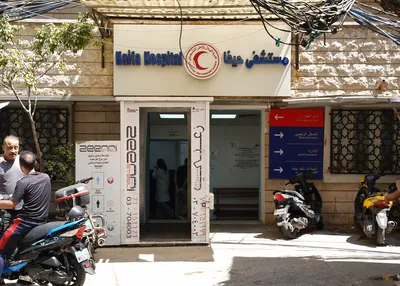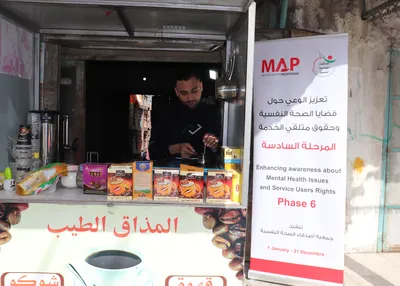Collapse of healthcare for Palestinians in Lebanon inevitable without urgent action
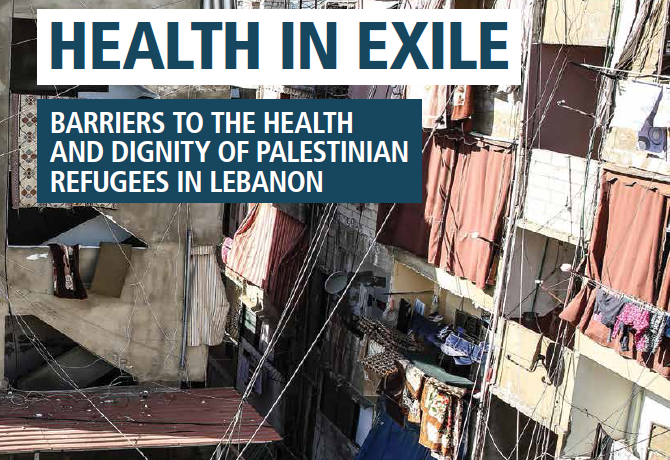
After 70 years of displacement and marginalisation in Lebanon, Palestinian refugees are impoverished, dependent on aid and reliant on a sub-standard Swiss-cheese healthcare system at risk of collapse.
In Health in Exile: Barriers to the Health and Dignity of Palestinian Refugees in Lebanon, MAP shows not only how dismal socioeconomic conditions impact their health and dignity, but how a chronically under-resourced and jumbled system of healthcare is struggling to deliver adequate services.
“The healthcare system is stuck in an unsustainable limbo”, said Aimee Shalan, Chief Executive Officer of MAP.
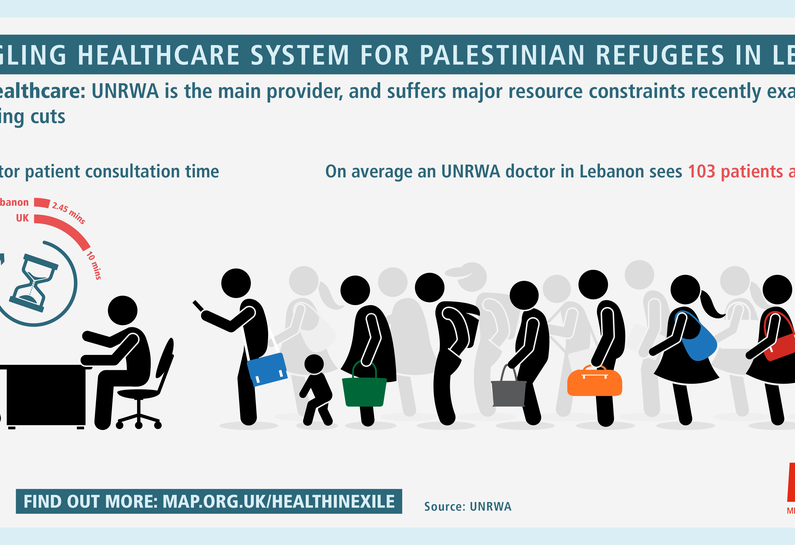
Health in Exile outlines how the average doctor-patient consultation time in primary UNRWA clinics is 165 seconds, compared to 10 minutes in the UK - which many regard as too short. A generation of health workers in Palestinian Red Crescent Society (PRCS) hospitals is edging towards retirement without being replaced. Patients and their families are forced to borrow and call in favours to pay for treatment, leading to spiralling poverty and further ill-health.
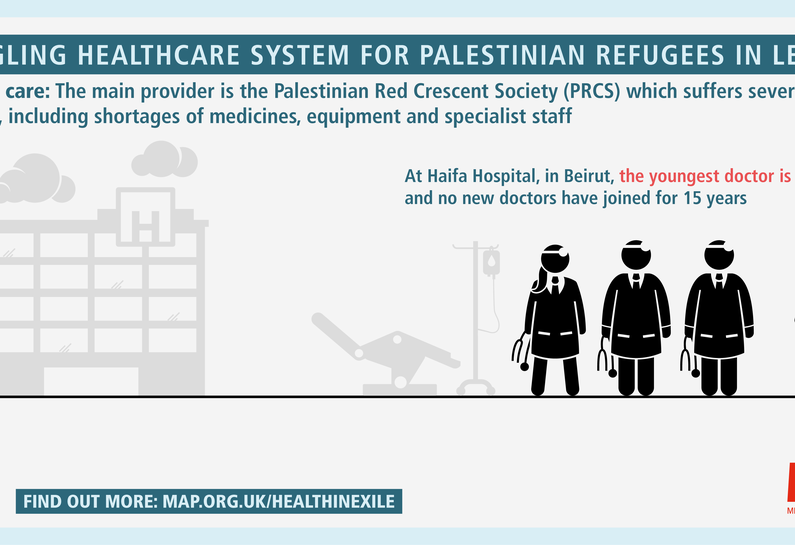
Decades of discriminatory policies and practices including ones related to the right to work confine most Palestinians to low paid, unskilled or semi-skilled jobs. The average monthly income for a Palestinian (equivalent to £258) is lower than the national minimum wage (£324) and most work without contracts or sick leave.
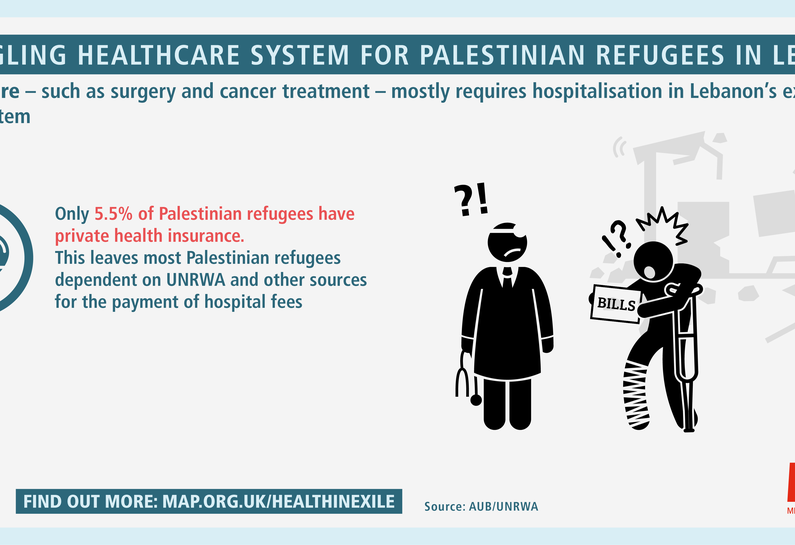
As many as 39 professions are currently barred to Palestinian refugees, including all major healthcare jobs. As a result, many work illegally in Lebanese hospitals, without contracts, security or benefits. Those working inside the camps, such as in PRCS hospitals, have low wages and few opportunities for development. MAP learnt at one PRCS hospital that not a single new doctor had begun work there in 15 years.
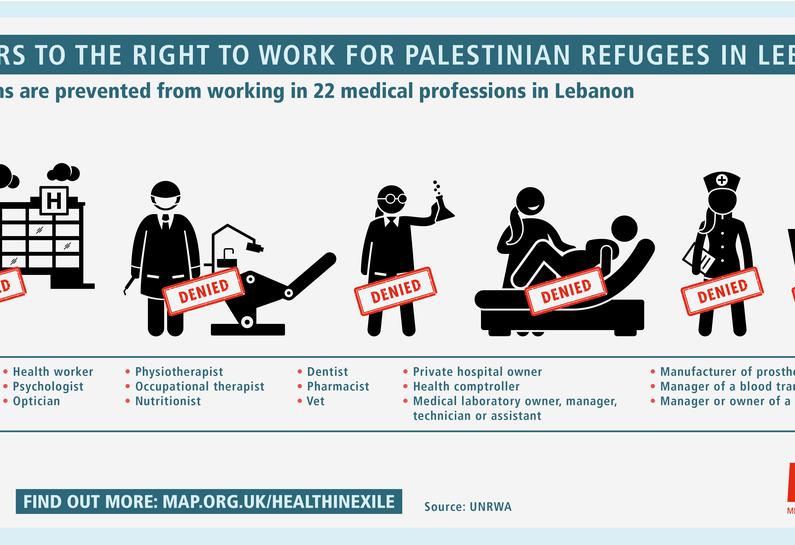
The Trump Administration’s reductions in funding for UNRWA jeopardise healthcare and health even further.
“Drastic US cuts to UNRWA funding are set to further undermine the availability of health services in this already-dire situation, with potential health- and even life-threatening consequences,” continued Aimee Shalan. “The UK and the rest of the international community must do more to address pressing humanitarian needs, while also re-committing to the long-term fulfilment of Palestinians’ rights, including self-determination and return.”
The report highlights how the barring of Palestinians from most healthcare jobs in Lebanon limits the sustainable development of a skilled Palestinian health workforce that could benefit the living conditions both of their own communities and their host countries until their long-awaited return.
The status of Palestinians has become a litmus test, the report argues, of the world’s willingness to address the root causes of refugees’ humanitarian needs. Their 70-year-long humanitarian crisis demonstrates a global failure to address both their right to return, enshrined in international law, and the restrictions placed on their human rights in host countries while displaced.
MAP’s report calls upon the international community to work with Palestinian-focused health providers, including UNRWA, to ensure healthcare is affordable, appropriate, sustainable and comprehensive, while also urgently filling immediate gaps in services.
MAP also calls on states to assist the Lebanese authorities to remove all discriminatory laws and practices against Palestinian refugees, and fund local initiatives and international scholarships that will help stem the decline of the local Palestinian health workforce.
Today, Palestinian refugees who have been dispossessed and displaced for 70 years, continue to suffer the denial of their internationally-recognised rights to self-determination and return, and consequently a multitude of humanitarian and human rights challenges.
Related content
